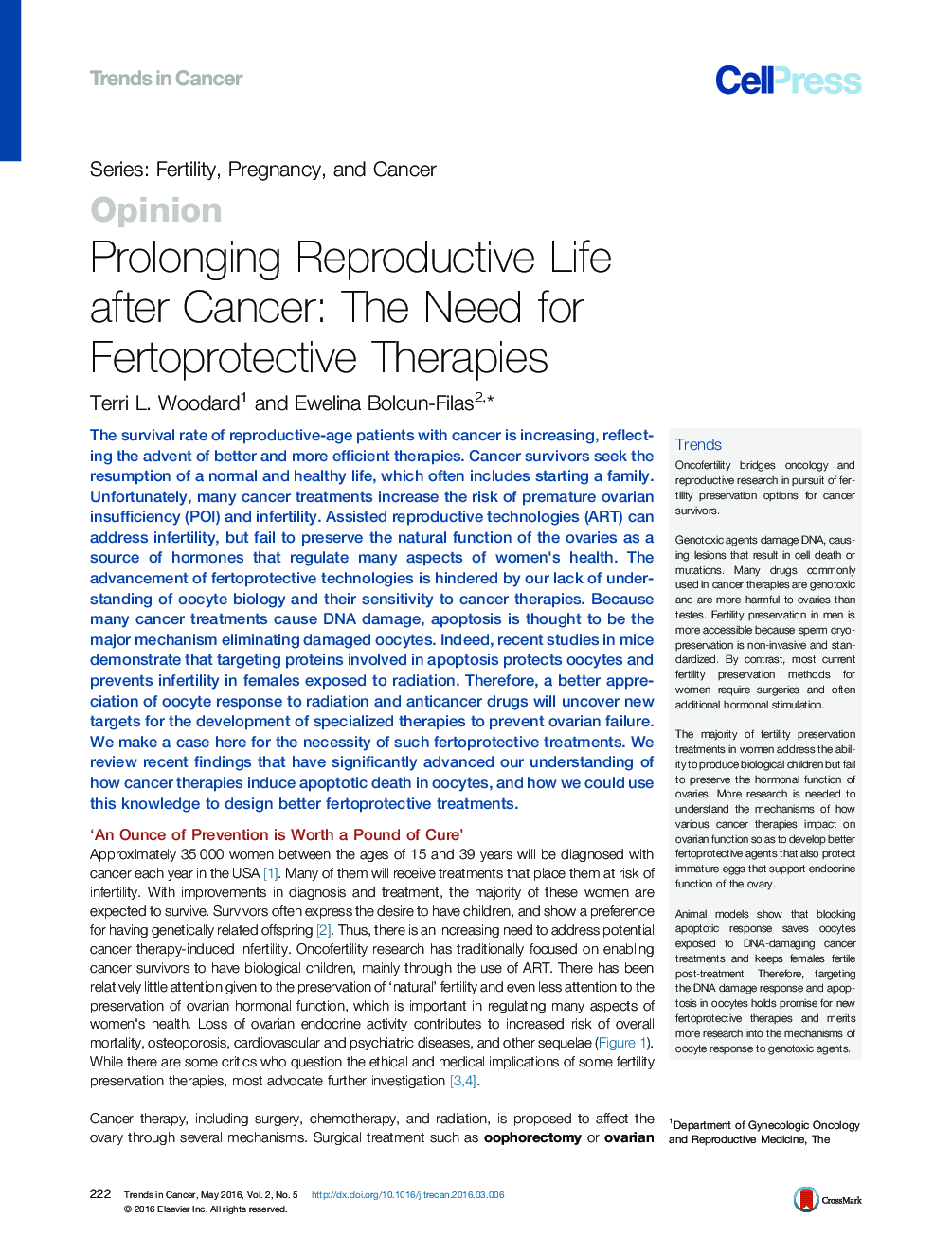| Article ID | Journal | Published Year | Pages | File Type |
|---|---|---|---|---|
| 2164035 | Trends in Cancer | 2016 | 12 Pages |
Abstract
The survival rate of reproductive-age patients with cancer is increasing, reflecting the advent of better and more efficient therapies. Cancer survivors seek the resumption of a normal and healthy life, which often includes starting a family. Unfortunately, many cancer treatments increase the risk of premature ovarian insufficiency (POI) and infertility. Assisted reproductive technologies (ART) can address infertility, but fail to preserve the natural function of the ovaries as a source of hormones that regulate many aspects of women's health. The advancement of fertoprotective technologies is hindered by our lack of understanding of oocyte biology and their sensitivity to cancer therapies. Because many cancer treatments cause DNA damage, apoptosis is thought to be the major mechanism eliminating damaged oocytes. Indeed, recent studies in mice demonstrate that targeting proteins involved in apoptosis protects oocytes and prevents infertility in females exposed to radiation. Therefore, a better appreciation of oocyte response to radiation and anticancer drugs will uncover new targets for the development of specialized therapies to prevent ovarian failure. We make a case here for the necessity of such fertoprotective treatments. We review recent findings that have significantly advanced our understanding of how cancer therapies induce apoptotic death in oocytes, and how we could use this knowledge to design better fertoprotective treatments.
Related Topics
Life Sciences
Biochemistry, Genetics and Molecular Biology
Cancer Research
Authors
Terri L. Woodard, Ewelina Bolcun-Filas,
